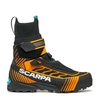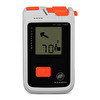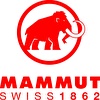Annapurna: Tomasz Humar south face report
Tomaz Humar reveals details of his solo adventure to the East Summit of Annapurna (8047m) via a new line up the South Face.

 1 / 17
1 / 17
Tomaz Humar just before the summit of Annapurna (Dhaulagiri and Niligiri in the background)
 Tomaz Humar
Tomaz Humar
On 28 October Tomaz Humar climbed the South Face of Annapurna (Nepal, Himalaya) solo, achieving a dream ascent up one of the most fascinating and terrible walls in the Himalaya. The news, understandably, sent shockwaves through the mountaineering community. And instantly the rumours spread via the internet, shining, once again, for the lack of details: which summit was reached (Main Summit? or South Summit?), which route was climbed (perhaps next to the British route on the lefthand side of the face?) and also what were the ascent times and style?
In the meantime Humar returned to Slovenia, but still no one was able to gleam precise information about the ascent. While a brief interview for Slovenian TV confirmed that Humar had reached the 8047m high East Summit (the Main summit is located at 8091m), the line of ascent still remained unclear. Had Humar perhaps climbed the 1988 line ascended by Polish mountaineers Jerzy Kukuczka and Artur Hajzer (authors, as it happens, of the first winter ascent of Annapurna in 1987) up the righthand side of the South Face (for more details check out www.americanalpineclub.org)?
To shed light on the matter Tomaz Humar has now published a press release via his sponsor C.A.M.P. In brief, from 24 to 28 Octoberr Humar climbed the righthand side of the Annapurna South Face to reach the East Summit at 8047m, spending two bivvies and two full climbing days on the wall. The ascent was marked by high winds and carried out (almost superfluous to say) in alpine style. Leaving Base Camp at 4150m he climbed together with Jagat Limbu to 5800m (the only point where the route meets up with the Polish line) and then continued alone up a new line to the right of the Kukuczka-Hajzer: between 6000m and 7500m the routes are sepatated by circa 100m. The gale fore winds (100km/h) forced Humar to spend all of 27/10 in his bivvy at 7200m. On 28/10 he reached the East Ridge at 7500m, then continued to reach the East Summit at 15.00. Incessant winds made Humar opt for the right choice: he renounced the Main Summit and descended via the line of ascent to reach the 7200m bivvy at 20.25. The next day he descended to Base Camp.
At the end of the day it has been worth waiting for the details of this truly great ascent. Before leaving you to read Humar's expedition diary, we feel it is worth underling the fact that Humar wanted to check his line of ascent with Artur Hajzer, one of the two who climbed Annapurna in 1988. It is also worth underlining the initmate motivation an spirit which goes well beyond the technical ascent details and which seemed to have inspired and motivated Humar on Annapurna. Perhaps it is this, more than anything else, which provides the answers to all the questions.
Annapurna, South Face by Tomaz Humar
"I climbed a new route in pure alpine style without knowing that a team climbed this wall in 1988 not far from my new route. I climbed the route in just 2 days (up and down) in terrible conditions. For all of September the weather was extremely rainy and snowy with only a few breaks. When I started climbing, the wind from north-northwest - called the Jet Stream – became vicious, reaching speeds of 100-150 km/h. In 1997 the same kind of wind was the reason for the death of my partner Janez Jeglic (on Nuptse Editor's note).
24th October: I start out with my friend Jagat Limbu. We cross the glacier and weave our way through mixed rock and ice pillars under the main wall at 5800m. We stage our first bivy on a small ice platform at 5800 meters.
25th October: We remain in our bivy at 5800 meters all day due to strong winds and stomach problems. Moreover, I did not feel acclimatized. I had only climbed Tharpu Chuli (5690 m) as a warm-up peak and did not sleep higher than 5300 meters. These are insufficient altitudes to adequately acclimate for an 8000 meter peak.
26th October: I start climbing at 6 a.m. - no helmet, no rope, no harness - just bivy gear, some food and gas. I leave everything else with Jagat who would face the descent alone in case I did not come back. At 3 p.m., I start digging a hole in the ice at 7200 meters. This is my second bivy.
27th October: I spend the entire day inside the ice hole to acclimatize more - I do not want to take any risk of edema. The wind is really strong reaching speeds greater than 100 km/h.
28th October: The alarm goes off at 6 a.m. I have not slept. I have just been waiting and waiting for a good moment to leave. The sky is clear. The wind is strong ... and cold (I had been warned by Swiss weather not to cross the ridge due to strong winds from the Jet Stream). I climb very light carrying just 2 liters of juice which freeze within the first hour. After two hours, I make it to the East Ridge at 7500 meters where Loretan and Joss passed in 1984. Despite very strong winds, I continue towards the East Summit. By 10 a.m., I have crossed most ofthe East ridge and the summit feels close at hand. With each passing hour, the wind grows stronger. As I climb higher, ice and snow falls increase in intensity and frequency and the risk of avalanche becomes more extreme. I am standing on the East Summit at 8047 meters before 3 p.m. I trust God, I pray, I feel safe! Even if the weather is good I would never dare to continue to the main summit at 8091 m as God gave me the possibility to reach it already once in 1995. It was my first 8000 m, this is the only answer I have to why I chose Annapurna, it’s 20 years since alpinism became “my way of life”. I immediately begin my descent. The shadow of the snow cornice is growing long. I call Jagat to tell him that I am on my way back. He is really happy to hear from me. The last contact we had was at 10:00 a.m. and since then he has been praying for me. As night closes in, I reach the beginning of the East Ridge. I am very tired and it has been a long time since I have been able to eat or drink. It is completely dark and I cannot see any of my tracks. I am lost, but in my soul I know that God is with me. My headlamp is not working due to low temperatures and I have to wait in the cold and dark for the moon to rise before continuing. I reach my bivy at 7200 meters at 8:25 p.m. I am totally exhausted. I send this sms: "Blessed, in bivac. New route up to 7500m +, then my the longest journey to myself. Annapurna east 8000m + and back after 14 hours in earth time. Everything was o.k., but if is this wind 60 km/h then i drive my car slowly." I enter meditation and I prepare a cup of tea as I wait for dawn to come.
29th October: At 8 a.m. I start climbing down to my first bivy at 5800 meters. I meet Jagat here after four hours (1400m) of descending. I call my doctor, Anda Perdan, who is waiting at base camp. I also call my parents, my girlfriend, my children and the agency ... everything is okay, I reached the summit and have descended safely! We continue to base camp (4150m) on the same day reaching it at 8:30 p.m.
30th October: After explaining the details of the ascent until 2 a.m., we gather our gear at base camp and make ready for the return home. In the afternoon, we organize the rescue of three members of a Korean expedition on the Annapurna Fang. Then we descend to Chumrung at 2100 meters.
2nd November: We reach Kathmandu after being in Pokhara the day before. I meet with Elizabeth Hawley and Richard Salisbury for four hours giving them pictures and an official report – the same details as outlined above.
7th November: I am back home in Slovenia.
Tomasz Humar
In the meantime Humar returned to Slovenia, but still no one was able to gleam precise information about the ascent. While a brief interview for Slovenian TV confirmed that Humar had reached the 8047m high East Summit (the Main summit is located at 8091m), the line of ascent still remained unclear. Had Humar perhaps climbed the 1988 line ascended by Polish mountaineers Jerzy Kukuczka and Artur Hajzer (authors, as it happens, of the first winter ascent of Annapurna in 1987) up the righthand side of the South Face (for more details check out www.americanalpineclub.org)?
To shed light on the matter Tomaz Humar has now published a press release via his sponsor C.A.M.P. In brief, from 24 to 28 Octoberr Humar climbed the righthand side of the Annapurna South Face to reach the East Summit at 8047m, spending two bivvies and two full climbing days on the wall. The ascent was marked by high winds and carried out (almost superfluous to say) in alpine style. Leaving Base Camp at 4150m he climbed together with Jagat Limbu to 5800m (the only point where the route meets up with the Polish line) and then continued alone up a new line to the right of the Kukuczka-Hajzer: between 6000m and 7500m the routes are sepatated by circa 100m. The gale fore winds (100km/h) forced Humar to spend all of 27/10 in his bivvy at 7200m. On 28/10 he reached the East Ridge at 7500m, then continued to reach the East Summit at 15.00. Incessant winds made Humar opt for the right choice: he renounced the Main Summit and descended via the line of ascent to reach the 7200m bivvy at 20.25. The next day he descended to Base Camp.
At the end of the day it has been worth waiting for the details of this truly great ascent. Before leaving you to read Humar's expedition diary, we feel it is worth underling the fact that Humar wanted to check his line of ascent with Artur Hajzer, one of the two who climbed Annapurna in 1988. It is also worth underlining the initmate motivation an spirit which goes well beyond the technical ascent details and which seemed to have inspired and motivated Humar on Annapurna. Perhaps it is this, more than anything else, which provides the answers to all the questions.
Annapurna, South Face by Tomaz Humar
"I climbed a new route in pure alpine style without knowing that a team climbed this wall in 1988 not far from my new route. I climbed the route in just 2 days (up and down) in terrible conditions. For all of September the weather was extremely rainy and snowy with only a few breaks. When I started climbing, the wind from north-northwest - called the Jet Stream – became vicious, reaching speeds of 100-150 km/h. In 1997 the same kind of wind was the reason for the death of my partner Janez Jeglic (on Nuptse Editor's note).
24th October: I start out with my friend Jagat Limbu. We cross the glacier and weave our way through mixed rock and ice pillars under the main wall at 5800m. We stage our first bivy on a small ice platform at 5800 meters.
25th October: We remain in our bivy at 5800 meters all day due to strong winds and stomach problems. Moreover, I did not feel acclimatized. I had only climbed Tharpu Chuli (5690 m) as a warm-up peak and did not sleep higher than 5300 meters. These are insufficient altitudes to adequately acclimate for an 8000 meter peak.
26th October: I start climbing at 6 a.m. - no helmet, no rope, no harness - just bivy gear, some food and gas. I leave everything else with Jagat who would face the descent alone in case I did not come back. At 3 p.m., I start digging a hole in the ice at 7200 meters. This is my second bivy.
27th October: I spend the entire day inside the ice hole to acclimatize more - I do not want to take any risk of edema. The wind is really strong reaching speeds greater than 100 km/h.
28th October: The alarm goes off at 6 a.m. I have not slept. I have just been waiting and waiting for a good moment to leave. The sky is clear. The wind is strong ... and cold (I had been warned by Swiss weather not to cross the ridge due to strong winds from the Jet Stream). I climb very light carrying just 2 liters of juice which freeze within the first hour. After two hours, I make it to the East Ridge at 7500 meters where Loretan and Joss passed in 1984. Despite very strong winds, I continue towards the East Summit. By 10 a.m., I have crossed most ofthe East ridge and the summit feels close at hand. With each passing hour, the wind grows stronger. As I climb higher, ice and snow falls increase in intensity and frequency and the risk of avalanche becomes more extreme. I am standing on the East Summit at 8047 meters before 3 p.m. I trust God, I pray, I feel safe! Even if the weather is good I would never dare to continue to the main summit at 8091 m as God gave me the possibility to reach it already once in 1995. It was my first 8000 m, this is the only answer I have to why I chose Annapurna, it’s 20 years since alpinism became “my way of life”. I immediately begin my descent. The shadow of the snow cornice is growing long. I call Jagat to tell him that I am on my way back. He is really happy to hear from me. The last contact we had was at 10:00 a.m. and since then he has been praying for me. As night closes in, I reach the beginning of the East Ridge. I am very tired and it has been a long time since I have been able to eat or drink. It is completely dark and I cannot see any of my tracks. I am lost, but in my soul I know that God is with me. My headlamp is not working due to low temperatures and I have to wait in the cold and dark for the moon to rise before continuing. I reach my bivy at 7200 meters at 8:25 p.m. I am totally exhausted. I send this sms: "Blessed, in bivac. New route up to 7500m +, then my the longest journey to myself. Annapurna east 8000m + and back after 14 hours in earth time. Everything was o.k., but if is this wind 60 km/h then i drive my car slowly." I enter meditation and I prepare a cup of tea as I wait for dawn to come.
29th October: At 8 a.m. I start climbing down to my first bivy at 5800 meters. I meet Jagat here after four hours (1400m) of descending. I call my doctor, Anda Perdan, who is waiting at base camp. I also call my parents, my girlfriend, my children and the agency ... everything is okay, I reached the summit and have descended safely! We continue to base camp (4150m) on the same day reaching it at 8:30 p.m.
30th October: After explaining the details of the ascent until 2 a.m., we gather our gear at base camp and make ready for the return home. In the afternoon, we organize the rescue of three members of a Korean expedition on the Annapurna Fang. Then we descend to Chumrung at 2100 meters.
2nd November: We reach Kathmandu after being in Pokhara the day before. I meet with Elizabeth Hawley and Richard Salisbury for four hours giving them pictures and an official report – the same details as outlined above.
7th November: I am back home in Slovenia.
Tomasz Humar
Note:
| Links Planetmountain | |
| News Humar | |
| Links Expo.Planetmountain | |
| Expo C.A.M.P. | |
| Links www | |
| www.asian-trekking.com | |
| www.humar.com | |
Latest news
Expo / News
Expo / Products
Revolutionary fast & light mountaineering boot SCARPA RIBELLE TECH 3 HD, with superior waterproof and breathable protection thanks to HDry technology.
Technical footwear for high altitude mountaineering and ice climbing.
Mammut Barryvox 2 is a compact avalanche transceiver for fast, supported search.
The Zenith is a mountaineering axe that uniquely combines lightweight design with technical features for top-level performance.
Merino Wool Socks for Ice Climbing and Dry Tooling.
Ocun Diamond S climbing shoes designed for maximum performance, comfort, and precision



 Copia link
Copia link












 See all photos
See all photos






















